We receive many comments from visitors lamenting that there’s no more Aloha in Hawaii. Was there ever, and does it still exist? These are two interesting questions we are going to discuss.
With the advent of a proposed $50 arrival fee that Hawaii Governor-Elect, Josh Green, has endorsed and a range of visitor fees, like Maui beach parking, state park permits, Kauai paid beach parking coming, and other fees and surcharges, visitors have been pushed to the brink of saying enough is enough.
Oh yeah, and by the way, what’s with the Aloha?
Add to the burgeoning costs is an unprecedented tension between visitors and residents in Hawaii that is beyond what we have ever experienced.
Most of us in Hawaii are connected in some way with tourism, either directly or indirectly. We appreciate visitors who demonstrate valuing what Hawaii has to offer, including our native culture and our unique ways.
It’s not perfect here, and the state continues to err in so many ways. That’s why the roads are broken and the airports are third-world, just for starters. We don’t like that any better than visitors do.
Global entitled revenge tourism didn’t help.
It isn’t just Hawaii. Much of this is prevalent wherever there is a dominant tourism industry. Some things, especially travel, appear forever shifted after Covid.
There are many visitors, like Joy, who said, “…we are not entitled… But we feel we may be treated that way by people who dislike tourists. Wish we were going to where we are welcome with open arms. Aloha.”
Good luck, Joy. We don’t think there is a place where tourism didn’t change for the worse following Covid.
What about the Polynesian Cultural Center analogy?
PCC is where happiness is manufactured in a Hawaii visitor park, and everyone is friendly and smiling. But Hawaii is not that, and we aren’t arranged well or specifically for visitors, so you’ll find yourself in the midst of our humble, sometimes troubled, and very real-world island life.
Hawaii marketing has a significant role in this Aloha failure.
Hawaii state tourism’s arm, the HTA, and its private partner HVCB can be blamed for marketing Hawaii as a paradisiacal theme park where more is better. That is slowly changing. That television-like fantasy sets everyone up for a big disappointment. The truth is that Hawaii has been overrun with tourism, and there’s no denying it. And there’s a price we all pay for that. As residents, we can feel overwhelmed by the sheer number of visitors. And as visitors, you can feel shunned and unappreciated by those whose home is Hawaii.
We live here, and your visit impacts our lives both positively and negatively.
We want visitors to be kind and generous when here, and not just monetarily. Instead, we hope visitors will be both grateful, curious, interested, and respectful of our culture. And we hope to help visitors feel Aloha returned to them after flying great distances across the Pacific and spending hard-earned money.
Them and us – it’s sadly the new way.
Whether politics or travel, it’s just another part of how the world has changed. The new global tourism paradigm pits tourists against residents. We often don’t seem to feel we are in anything together any longer. We read about that across the US, and abroad.
One person exclaimed about visitors, they “treat our land like it’s some theme park, they will ignore warning signs, fenced-off areas, and no trespassing signs, which can cause damage to our environment like erosion, vandalism, and pollution. Tourists will try to go near and touch monk seals and turtles at the beach, despite having multiple signs at our beaches warning people that these are endangered species and touching them will result in them paying a fine.”
Who can argue with that? It’s plainly true.
There has been a growing discontent with unbridled Hawaii tourism that’s been happening for years. Then came COVID, which both stopped tourism for an extended time, and mainly, as a result, changed the perspectives of tourists and Hawaii residents.
Then came the over-the-top tourism rebound that no one expected, with pent-up demand, and frankly, far too much change for the worse in the attitude of some of our visitors.
Coming together to find the Aloha?
Most Hawaii visitors cherish the escape from everyday life when they vacation in Hawaii while others are more culturally inclined. Most are respectful here in Hawaii, but many, and far more than ever before, are not. You’ve commented on that being true not only here in Hawaii but elsewhere too. Again, it feels global.
We have seen this countless times ourselves. For example, visitors stopping in inappropriate places, illegal turns, and u-turns, being overly demanding, and those who get disrespectfully close for photos, and do not respect boundaries that are there to protect wildlife, among other things.
Residents tend to fall into two groups, the first being those who work with tourism directly.
They are engaged in the hotel industry, vacation rentals, restaurants, activities, and a wide range of related businesses. When you meet those people in their professional capacity, you’re likely to experience what we’ll call a professional Aloha.
Then there are those residents who have little to do with tourism.
We’ll offer that residents mostly feel neutral about tourists. And in that way, they leave tourists alone and in return, wish for the same. It is only when problems arise that residents take note of visitors. Kindness, Aloha if you will, will exist, and likely with reciprocity for how they are treated. We believe most people here want visitors to enjoy Hawaii while appreciating those things that we love too, and treating us, and our home, including flora and fauna, with respect.
You may also recall that a study we’ve mentioned before, conducted a few years ago, that demonstrated no appreciable shift in how Hawaii residents felt about tourists. 1,600 Hawaii residents surveyed generated an average ranking of 8 on a scale of 1 to 10 regarding their feelings about Hawaii tourism.
Aloha given equals Aloha received.
Kindness and generosity of spirit go a long way in both directions, and these are needed now more than ever. So while residents should respect tourists who have chosen to spend their vacation here and add significantly to our economy, tourists should respect both Hawaii’s culture and our local ways of life. When these happen in concert, we do find Aloha. There are countless examples of this, and we experienced them ourselves throughout the islands, most of the time.
Hawaii remains authentic and unique.
Hawaii is about the people, nature, and a beautiful, unequaled environment here on the most isolated islands in the world. Hawaii remains unique and, without judgment, in our opinion, for multiple reasons, can’t be compared with Mexico or other destinations.
Reader comments on this subject:
Robbos said, “Thanks for the easily-digestible view of the HTA’s plans and problems. A key issue seems to be that many tourism-reliant businesses market the entire state as a paradisiacal theme park. This leaves tourists disappointed when locals don’t act like theme park employees, and locals are insulted to be treated as such. Hawai’i isn’t Six Flags; it is a unique combination of cultures that over-tourism is killing.”
Regular Pam commented, “As a long-time local, I can tell you that there’s nothing that will make everyone happy. People seem to want to be miserable these days. It breaks my heart to see this lack of Aloha and discord. There’s nowhere on Earth like Hawaii. If you don’t want to come, go elsewhere. Just stop tearing us apart.”
Gary said, “Are visitors really hated by most locals? Are the majority of visitors as horrible and rude as I’m reading on Facebook? There were so many locals making so many claims of how much they hate visitors.” Sometimes visitors feel like they can’t catch a break in relation to Hawaii travel. And residents have their own similar take.
Please come and enjoy Hawaii with kindness and respect; maybe you too will find the pearl of what makes Hawaii unique.
We welcome your thoughts.
Get Breaking Hawaii Travel News
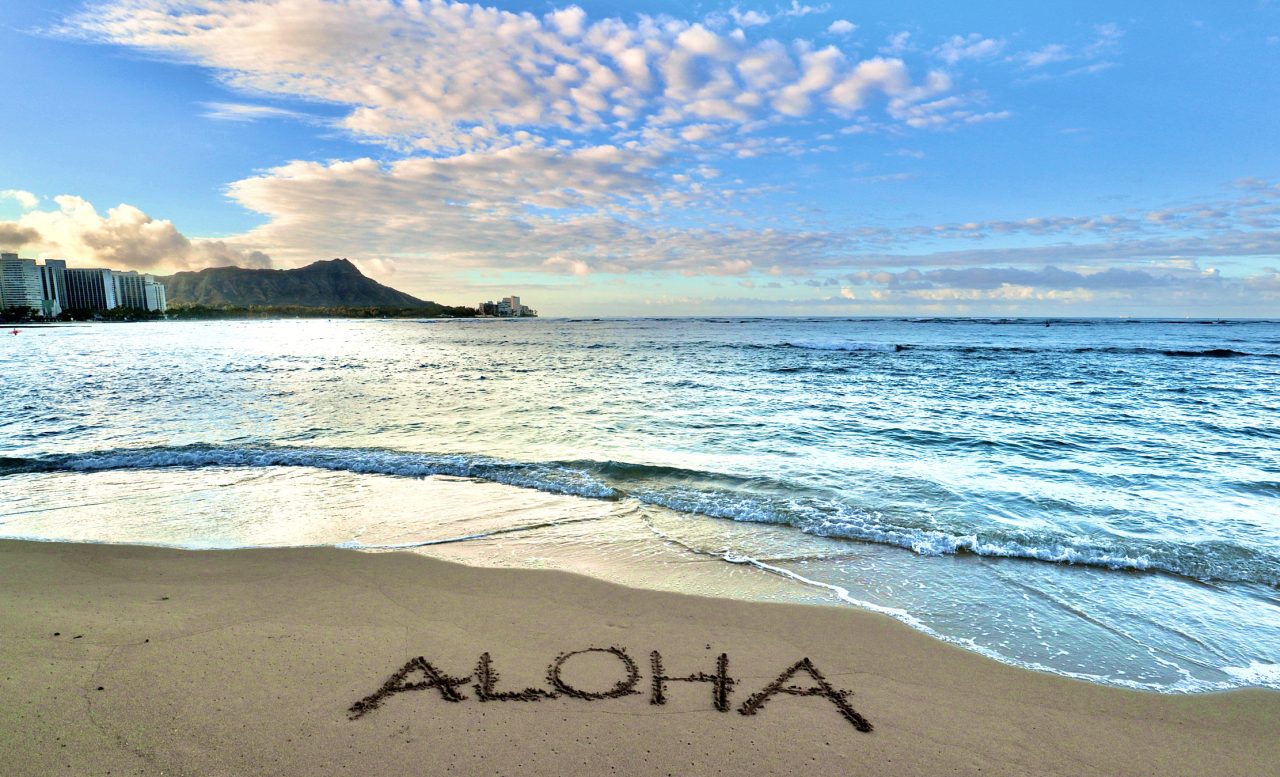
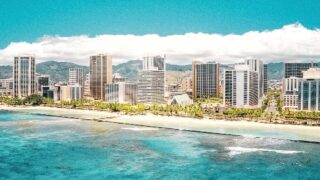

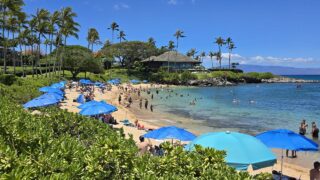
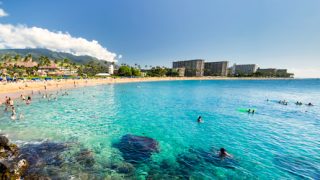
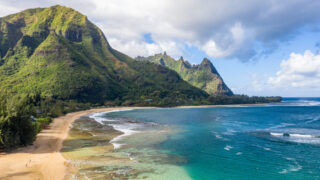
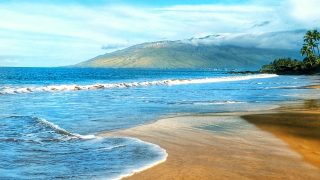
My wife and I just got back from a two week stay at our Marriott time share on Kauai. We have been visiting Kauai for over 30 years. We can honestly say that we have never experienced anything but kindness and courtesy from locals and the Marriott staff. One could conjecture that would be expected of Marriott staffers, but I’ve been in sales for over 30 years and I know when someone is blowing smoke at me. The people are genuine and kind. Aloha is not dead. Everyone needs to take a deep breath. Their are so many truly spiritual places to visit. I took my cousin for his first trip to the Kilauea Light House. He was standing by himself mesmerized, stating this was the most beautiful place he had ever seen. I added, the most spiritual place. To us this is Kauai. Sadly we have to wait until 2027 to make it back. Good article by the way. You bring up very compelling issues.
Damned if we do, damned if we don’t. Protesting against tourists started after covid. Now the prices are ridiculous and we’re not assured our room will be available if we come. We’re told not to come or to come and on top of price gouging we’re told to spend our money, tip generously and be respectful. I really can’t imagine disresprectful to anyone there, let alone fire survivors. So many of us have sent $$$, adopted families, fulfilled Amazon wishes, etc. Stop treating us like we’re the cause of all the problems. I am a long time visitor and love Maui and her people. I hope to visit soon.
As a native born Hawaiian, now residing in Wyoming, I just don’t know how the State can prevent me from returning home for my annual 6 week visit with family and friends. Property owners from Kaanapali north should not be restricted. We are not tourists per day. We don’t “need” to visit Lahaina. We have spent thousands of hours there and enjoyed every second of it. But it’s not to be confused with our need to return home to Maui.
I disagree with most of what this article is saying. I’m from California and have been visiting Maui for almost a decade (both pre and post COVID) and not only do I have a deep respect for the culture, but also experience a reciprocal aloha feeling from other tourists I encounter as well as the locals. Sure, there are some bad apples out there and unfortunately they do ruin it for the rest of us, but they represent the minority, not the majority. I will also say that airlines such as Alaska Airlines have done a Great job of educating people and posting educational videos on their in flight entertainment and encouraging people via email campaigns and other marketing to “give back” by volunteering their time to a local charity while on vacation.
I plan on doing local things in Maui and giving aloha on my trip in August.
I can’t speak for other countries, but the US has become more angry, entitled, and divided over the years. This started before COVID, but I think that the pandemic made it worse. We see this in the number of flight attendants that are assaulted, as well as the rude, entitled, and “the rules apply to someone else” behavior that we see from too many tourists. Add to that some of the Hawaii residents who for a long time have disliked having visitors and it’s a volatile combination. Finally, as we can even see from some of the comments, the other 800 lbs gorilla in the room is the dislike some multi-generational Hawaiians have for more recent residents. Mix it all together, and, well, I can see how some would say that Aloha is dying.
Aloha, After living in HI & now on the mainland, I am so thankful of your HI info. I visited HI in 1970 & annually until 1995 when 3 young kids made the 4 hr time diff. rough.When my daughter family moved to HI in 2009 I visited 1 or more x/ yr. When we 1st visited it was so much less developed, fewer roads, & tourists. Yet Hi still has aloha, beauty & charm. When someone is going to visit for the 1st time I give them my formula for magic in HI.
Keep the radio/internet tuned to Hawaiian music or make a long diverse playlist. Wear a lei preferably fragrant; take time to smell the flowers along your paths. Lilting Hawaiian language, no translation woes, US $$ use, & awesome beauty make this the easiest exotic trip you can ever take. Mahalo
Ha! Locals would be sooooooo upset if Las Vegas (a/k/a Lost Wages) taxed them to death, nor wanted them.. oooh lala!
There’s a lot of problems in Hawaii with tourism and the one of the problems is that visitors when they come….they need to have respect of Hawaii as if they were visting Grandma’s house!!!! or anyone’s house! They need to be friendly, respectful, clean and treat people with respect! You need to treat people as if they were your grandparents! You receive what you project and what you give! Yes…HVCB did a horrible job marketing Hawaii….they had no RESPECT for Hawaii’s culture, Hawaii’s people and Hawaii’s Flora and Fauna! Shame on them! So….let’s change this…..starting with respect, kindness and patience! Don’t act all entitled because you are a visitor!
Local or kamaaina is generally understood by those who are local or kamaaina to mean multi-generational settler. If you weren’t born and raised here for generations, you’re neither local nor kamaaina. You’re malihini or haole. Second, aloha is only one ike Hawaii. It has dominated the visitor-driven narrative of keia pae aina. I’m not super aloha, especially to those with whom I do not share a close relationship. I place far greater emphasis on olelo Hawaii, ike Hawaii, aina, than I do aloha. Also, those of us not connected to tourism do not have a neutral attitude towards tourists. I see tourists as direct competitors to our limited resources and rural infrastructure.
When IZ was alive we always loved seeing his shows. From IZ, you always got music and a lecture on politics. How he felt about Aloha and what it was are two very different animals. How native Polynesians and the rest of the people who live in Hawaii feel about aloha cannot be put in the same bottle.
Aloha LOL.
Aloha is something everyone should give to everyone else. Sometime it seems like there is an animosity built up between locals and tourists, that didn’t used to be there. Both groups need to put on their “Big Boy Pants” and start treating each other with the respect and courtesy they used to show. It isn’t asking too much from any of us!
Since spending our honeymoon on the Big Island, we have visited Hawaii at least once a year (usually more) for the past 30+ years and currently have a daughter who lives and works on Kauai, it’s fairly obvious what the real issue is: “we have met the enemy and he is us” (Thanks! Pogo…). In essence, Hawaii is in the midst of the ‘perfect storm’, i.e., 1) entitled locals vs entitled visitors mentality; 2) corporate greed from the big hotel chains, rental car companies, etc; and 3) totally inept politicians who try to please everyone and please no one. It truly breaks my heart to see the ‘Aloha spirit’ on life support… but we have no one to blame but ourselves – if true Aloha was still practiced, we wouldn’t be having these discussions…
Entry fee for visitors is a great plan that needs some refinement. I’ve read here Hawaii is not Disneyland. I say why not? $50 is not enough, crank it up just like Disneyland, and charge by the day or sell multi day entry. Provide a deal on island hopper tickets so vistors are encouraged to move around the state and keep moving. Pay any resident who is willing to role play.
Disneyland is a horrible inconvenience for local residents, but it is worth it, and, I’ve never heard a sensible adult express a desire to move to Disneyland. Visitors will come, and you may lose some of those old nasty ones who return every year and have staked some kind of weird claim
I agree with most of the comments that “you get what you give”. My last trip to Hawaii was pre-covid, and I even noticed this then. Our first day, we went to a local diner, and the waitress told me I was the first person that had said “Thank You” to her since her shift had started 6 hrs previously. She actually insisted my friend let me out of our booth so that she could hug me.
A little respect goes both ways.
Thank you BOH for all of your articles. Planning another trip to the Big Island in March, so maybe can update what I see post-covid